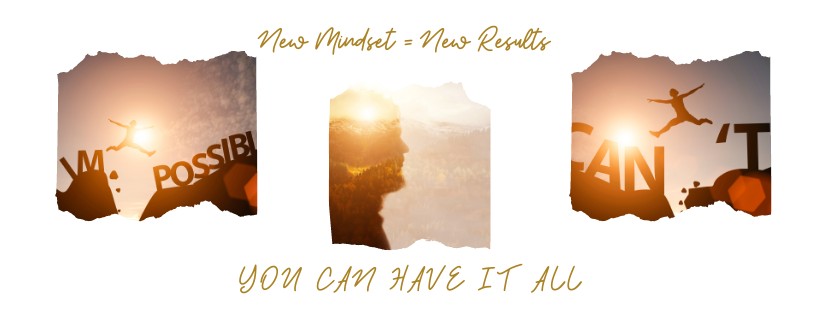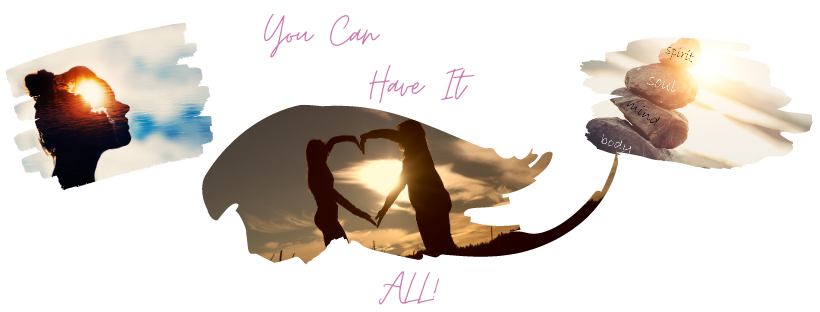DOES THIS SOUND FAMILIAR?
You know when you feel you're emotionally strong but you keep struggling with your weight and lifestyle habits? And, you really want to get out of this rut, move forward, and make positive changes in your life. Your deepest desire is to cut loose from emotions that keep you stuck and get moving and doing in a life you love.
Hey, lovely, whether you're struggling with weight, finances, exes, or everyday events, I can help you find your genius talent and have the confidence to get moving again. We can do this together.
I help women who are unhappy juggling life and family get back on track in one hour a week with my proven plan of success of using essential oils.
You don’t have to wait……………you can have it all.
I've been through many life-changing moves in my life. It started with getting a divorce more than a couple of decades ago which changed the whole path to my future. I left my marriage and got divorced when I was twenty-eight years old with two small children.
I didn't have a job, I was a stay-at-home mum. I hadn't been employed in the workplace for nearly five years and the small allowance given by Social Services was not even close to being able to support me or my kids. In fact, I was pretty broke!
The only other income I had was literally singing for my supper. I was a well-known Singer/Actress in a very popular group at the time and if not for a couple of jobs I managed to get every week singing, I'm not sure how we would have survived.
But, instead of getting bogged down wondering how I was going to support myself and my kids, I used my genius talent and left that divorce behind me. It turned out my divorce made me incredibly strong and independent again. I got moving and doing on to the life I always wanted to create.
I kicked my ex out and started my new life!
I started my new life feeling free even though finances were a bit of a struggle. But, because I believed I could make it all work, it did. Money was not as much as I would have liked, but it was there when I needed it and I was happy. I missed a meal or two, or three or four, but the kids were fed and I needed to lose a few pounds anyway!
After that came lots of changes. I attracted my soul mate, got married, and became pregnant almost immediately. When I was seven months along, my amazing hubby left his cushy Public Service job and started a business. Never regretted it!
Suddenly, we were generating our own income which should have been a little scary, but once again I always believed we would succeed, and guess what? We did!
The business was booming and all was well when our worst nightmare came true. Our business manager spent every penny of the company's money and left the country. We were back to square one with a huge debt, and now four kids.
Well, with income being very scarce, I decided I needed to earn some income. I'd only worked as a professional entertainer for years and had let that lapse a bit having had two extra children in the first two years we were married. I had to work around them, and leave room for amazing hubby to start again as well.
You won't believe my next move!
I decided to become an Avon Lady. You know, ding dong, door to door, selling out of that little book that came out every three weeks! I think my hubby rolled on the floor laughing, but not for long. You see, I believed I would succeed and succeed I did. I put my genius talent to work again, and in three months I was one of the top three sales representatives in the State.
Within six months, I was asked to be a Stand-In Manager and manage an Avon District for a Manager on leave. About twelve months into my little adventure, I was hired by Corporate Avon in Australia as a Manager with my own District, salary, expense account, and my own car. I wasn't bringing home two bob anymore, I was a contributor to the family income.
That was the good part. The hard part was my new District was #Thirty out of Thirty-three in the state. I had my work cut out for me. Well, I'm here to tell you that in six months my District was #Three and nobody was laughing anymore!
My hubby built another Consulting business while I worked at Avon and we were once again back to being abundant in all areas of our life. The Law of Attraction and Deliberate Creation in action! We didn't even know these Laws of the Universe were at work in our lives, we just believed in our genius talent!
The surprise move that came next!
Over the next few years, we were financially stable again and I resigned from what had become a grueling time-sucking job at Avon and moved back into the entertainment industry. During this time amazing brilliant hubby had come up with the idea to write one of the first Anti-Virus programs for computers in the world.
Well, life got pretty sweet, and we were rolling along on the golf course in Brisbane most days when he asked me about a big surprise move! How did I feel about moving to America? I never hesitated. Woo Hoo! I was totally in.
We began to pack up what we could take with us, our clothes, furniture, my piano and called the movers. We rented the house, said good-bye and hubby, myself and four kids with half a suitcase each, boarded a plane one Saturday morning in January to start our new adventure.
Everyone thought we were crazy but I knew this was one of the most amazing kick-butt moves I'd ever made in my life.
Then reality set in and I found another new path!
When I actually moved countries, I had become very successful as both a songwriter and performer in my hometown. It never occurred to me that I would not continue my professional music and acting career, but the struggle to re-establish myself was real and after few years I realized that I had to change paths yet again.
I took a year to just find myself and then a whisper came to my ear about adopting a child that needed a home from foster care. It moved very quickly from a thought to an actuality. Within a couple of days, we were in a ten-week course for foster/adoptive parents. We found pure potential when we had no clue that the ability or desire to do this lay deep inside of us. This became one of the most rewarding and fulfilling journeys in my life.
At the end of that ten weeks, I got a phone call and our new family began. Twin boys, twenty-months old came for the weekend and stayed forever. They were the first of about fifty foster children and the beginning of adopting eight children, which includes three sets of twins!
I loved my journey of being a foster/adoptive parent, but our house got full to overflowing, and even though most of our children are grown now, I am still an advocate and resource for Foster/Adoptive Parents.
How I decided to become a multi certified Life/Health Coach.
Many of our new children had been born drug and alcohol addicted, so I dealt with many different physical and mental issues that emerged in them as they began to grow up. I spent hours with our children in therapies of all kinds.
While dealing with Physical, Occupational, Speech Therapy, and a few psychiatrists along the way, I learned coping skills for managing different disabilities, and mental illnesses. I also learned how to have a good relationship with birth families in difficult circumstances.
I also had an older family who was going through teenage years and found myself the local mom and counselor. Many a teenager came into our home crying and left feeling better about themselves and their situation. Although I was technically being a Life Coach to those kids, I didn't officially gain my certifications until much later
In the last couple of decades, I've been constantly changing the path of my life and being successful at doing so. I've also realized that change for some is not easy and making a major move in life can leave you overwhelmed, and exhausted, unable to deal with the feelings around it.
I've also worked with foster and adoptive parents for the last twenty years, who also have to move on when a child is moved to a different placement, and their feelings are very similar to the emotions surrounding any life change.
As well, I've since been touched by divorce in my older adult children's lives. The biggest stumbling block they've had is moving on to their new life after divorce.
As I 've been there supporting them through their pain, I realized that I wanted to help others find their genius talent to get doing and moving and get their emotional energy flowing again. Through coaching, especially Seven + Seven Essentials, I love seeing them find their new life of joy and happiness. I love working as a coach alongside essential oils, as the breakthroughs come so much faster when the power of oils is added.
As a certified Aroma Freedom Technique Practioner, I have not only found the power of healing the mind with oils, but also healing the body.
I'm a certified Life Coach in Causal Coaching, Law Of Attraction, Money, Health, and Essential Oils. I find that most women who have left marriage not only have emotions surrounding it but quite often now battle with their health and their finances. I triumphed over all of these issues, I moved on and never looked back. I can help you.
Today, I am a confident mother of twelve children, a partner to an amazing man, and stepping out into everything the Universe and God have for me. I value myself as a businesswoman, a wife, a mother, and no longer fear a change in direction. I embrace all parts of me, creative, physical, mental, spiritual, and nourish each part of myself, with self-coaching, nutrition, and the power of essential oils.












